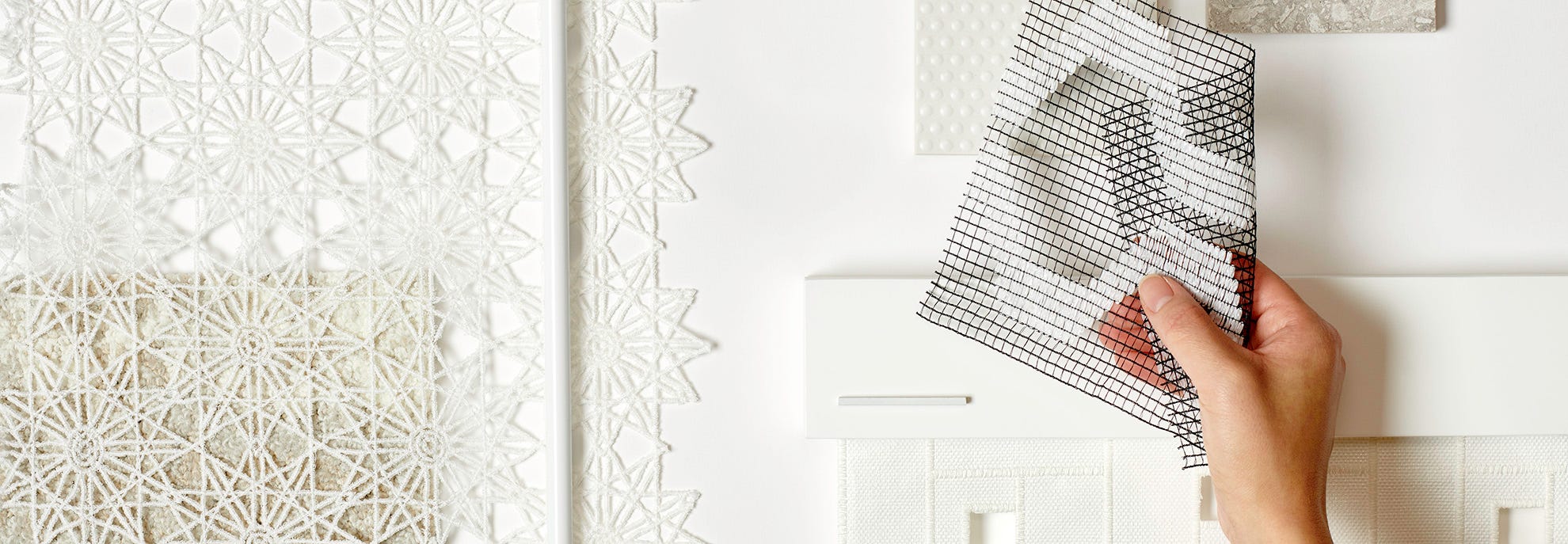Carnegie was founded with the goal of creating PVC alternative products for the commercial industry. Over time, this mission led us to become the first, and still the only, 100% PVC-free textile manufacturer in the industry.
During the 80s and early 90s, Carnegie studied the most ubiquitous wallcovering material used in commercial buildings: PVC (polymerizing vinyl chloride) or vinyl. PVC is a common component found in furniture, textiles and wallcoverings. Due to its rigidity, PVC requires plasticizers to soften it or make it more flexible for use. These plasticizers can be released through a process called off-gassing during manufacturing, as well as throughout the product's lifecycle.
As we learned about the potential release of dioxin (a group of highly toxic chemical compounds) during the PVC manufacturing and disposal process, we made the decision that PVC had no place in our products. For over 70 years, Carnegie has been unwavering in its commitment to finding safer, more sustainable alternatives.
Today, we are proud to announce that our dedication to cleaner, healthier materials goes even further: all Carnegie products are now 100% free of PFAS and antimicrobials. These chemicals, commonly used in textiles, have raised significant environmental and health concerns, making their removal a natural next step in our sustainability journey.
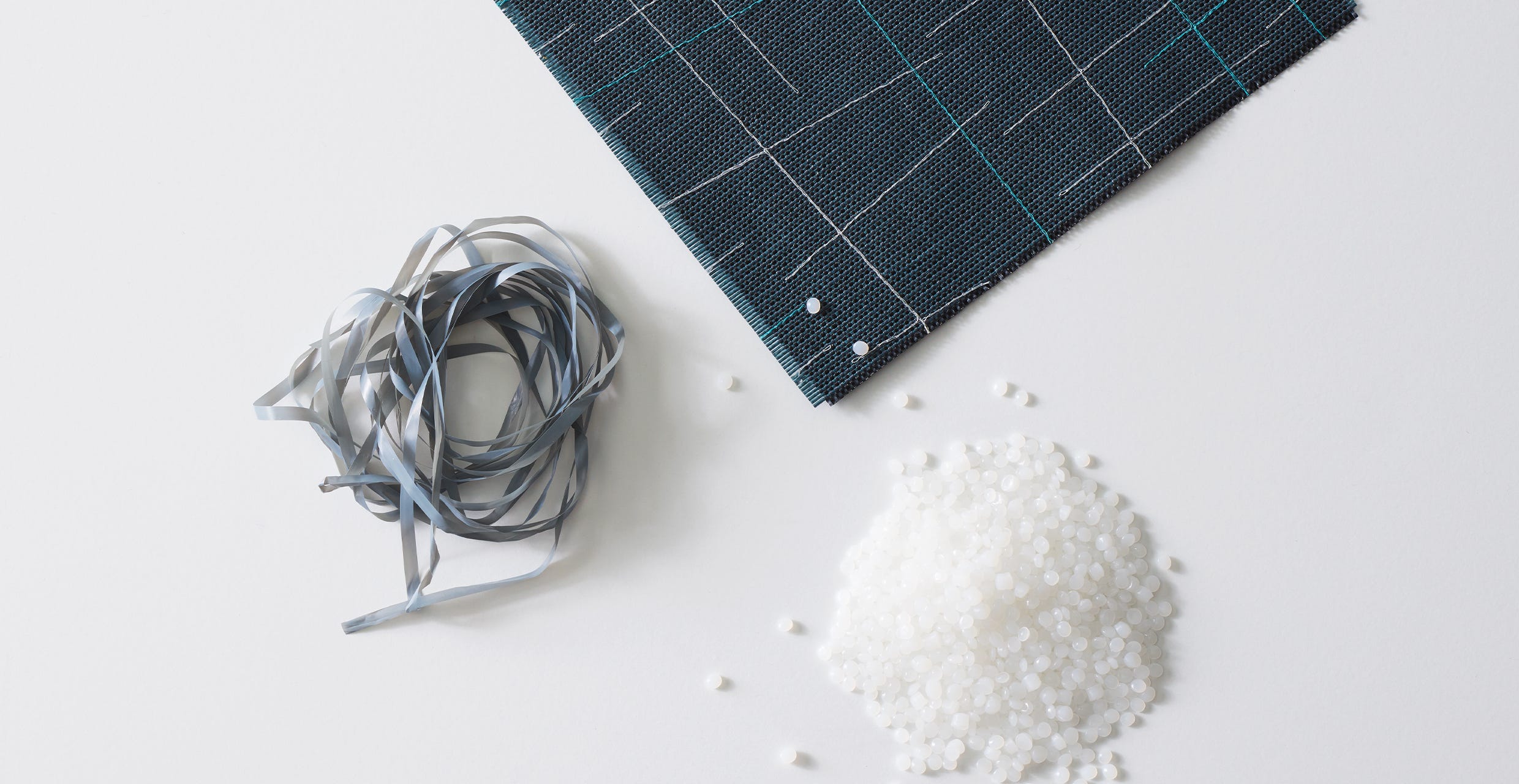
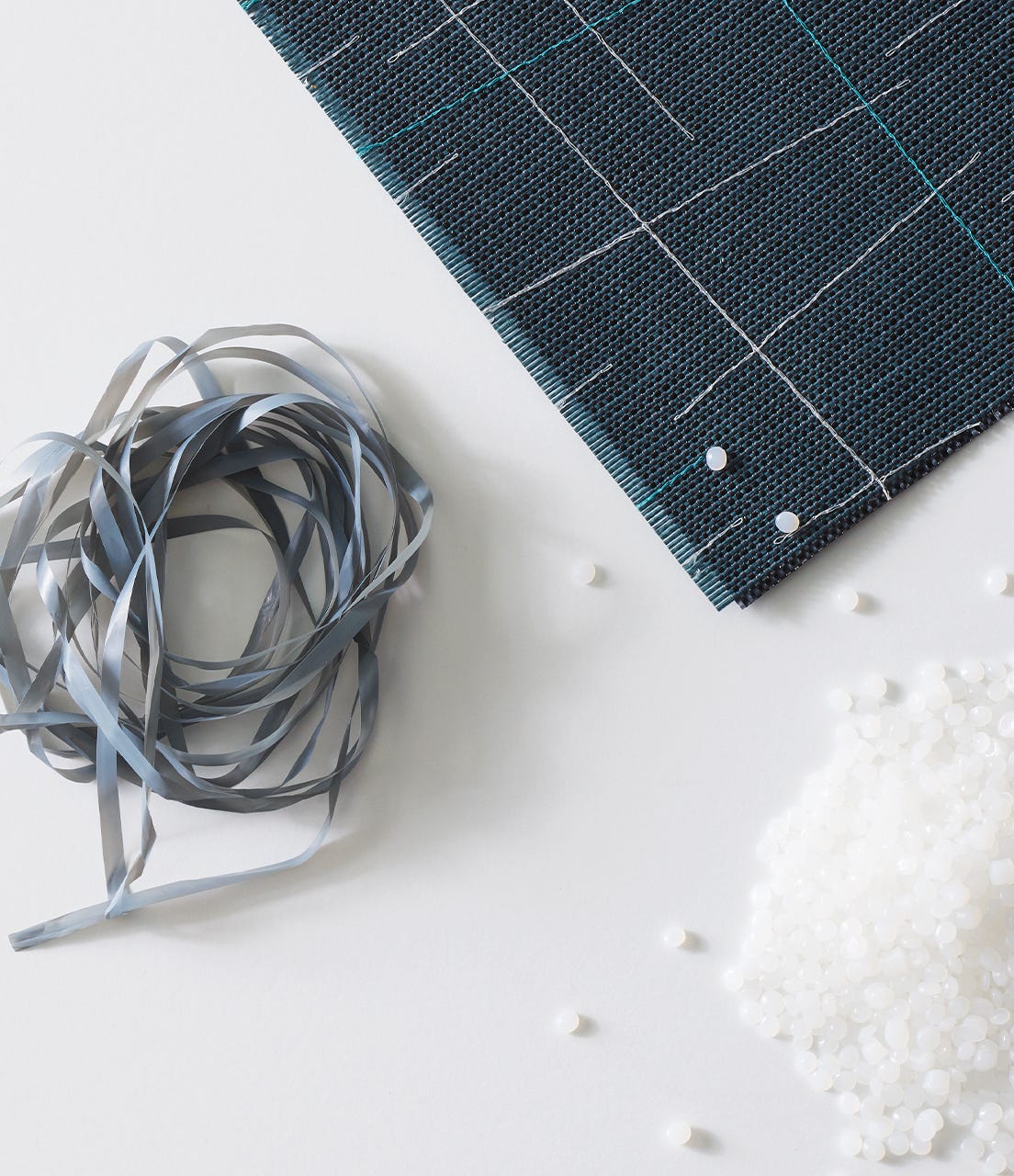
Xorel Was the First Step
Our commitment to sustainability was a natural foundation for the development of Xorel in the late 1970s and 80s. Xorel is made from polyethylene, the simplest and most ubiquitous of all plastics—a synthetic thermoplastic with a wide range of positive characteristics: it has great tensile strength, clarity, flexibility, and resistance to caustic compounds, offering high performance that can match PVC and act as a viable alternative. Equally important is what it does not contain—polyethylene contains is completely free of harmful additives, ensuring it is both safe and clean.
Xorel taught us to think more holistically about source materials, manufacturing processes, and life cycle analyses. The imperative was clearly there, and the development of Xorel proved that we had found an alternative to vinyl—a beautiful, durable, high performance product that was sourced, manufactured, and delivered sustainably. We embraced our responsibility to our employees, our clients, and the planet. Beyond design, color, and technical specifications, Carnegie became equally focused on sustainable material sourcing, life cycle impact, and disposal issues.


What Does 100% PVC-Free Mean, Exactly?
A company may have PVC-free products within its product line, while still selling products that contain PVC within its overall portfolio. That doesn't work for Carnegie. Our commitment to innovation is inseperable from our commitment to designing and delivering beautiful, high performance solutions that are delivered sustainably. Not one of our products contains any traces of PVC or vinyl, and never will; that is our Forever 100% PVC-Free Promise.
We've now expanded this commitment to encompass PFAS-free and antimicrobial-free products as well. PFAS, often referred to as "forever chemicals," persist in the environment and have been linked to adverse health effects. Similarly, antimicrobials, though commonly used, can contribute to resistant bacteria and leach harmful chemicals over time. Carnegie has eliminated both to ensure our products are as safe and sustainable as they are beautiful.
Our vinyl alternatives:
As our top vinyl alternative, Xorel
- Is inherently free of chlorine and plasticizers.
- Is a perfect solution for walls, panels, and upholstery.
- Meets or exceeds all the specification requirements of a Type II wallcovering under CCC-408D.
- Comes with a 10 year warranty.
Carnegie's Other Vinyl Alternatives
- Are free of plasticizers, chlorine, formaldehyde, heavy metals, and halogenated fire retardants.
- Use water based inks and coatings only.
- Meet or exceed all the specification requirements of a Type II wallcovering under CCC-408D.
Siltech
- Inherently antimicrobial and antibacterial, stain and scratch resistant.
- Made without phthalates, plasticizers or BPA.
- It has a 10-year warranty.
- Suitable for Indoor/Outdoor use.
- HHI and California Proposition 65 compliant.
- Available in over 100 colors.
- 1000 hours lightfastness.
Polyurethanes
- Carnegie polyurethanes are as soft as leather but perform like vinyl.
- Made without phthalates, plasticizers, or BPA.
- Inherently antimicrobial and antibacterial, stain and scratch resistant.
- Compliant with California Proposition 65.
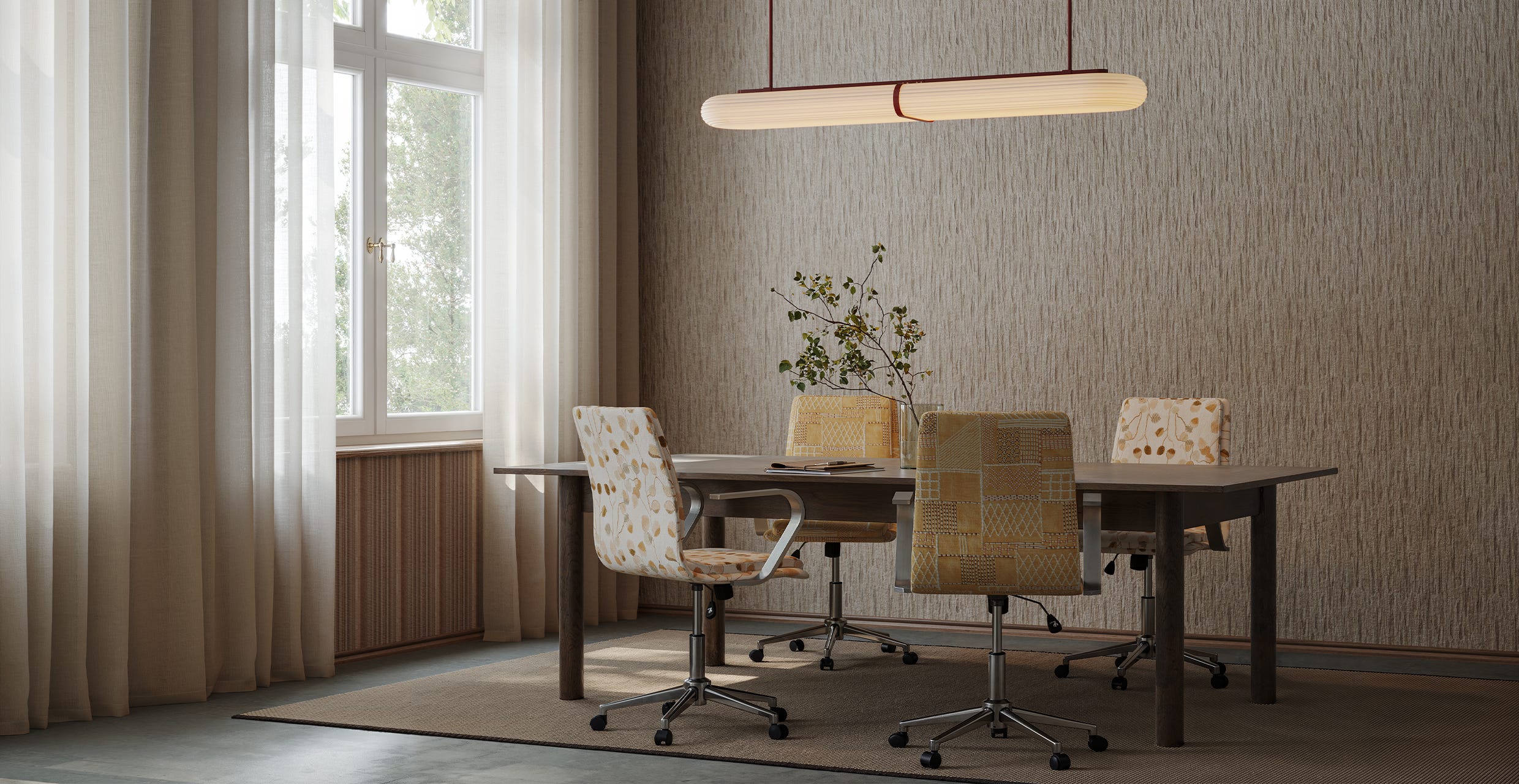
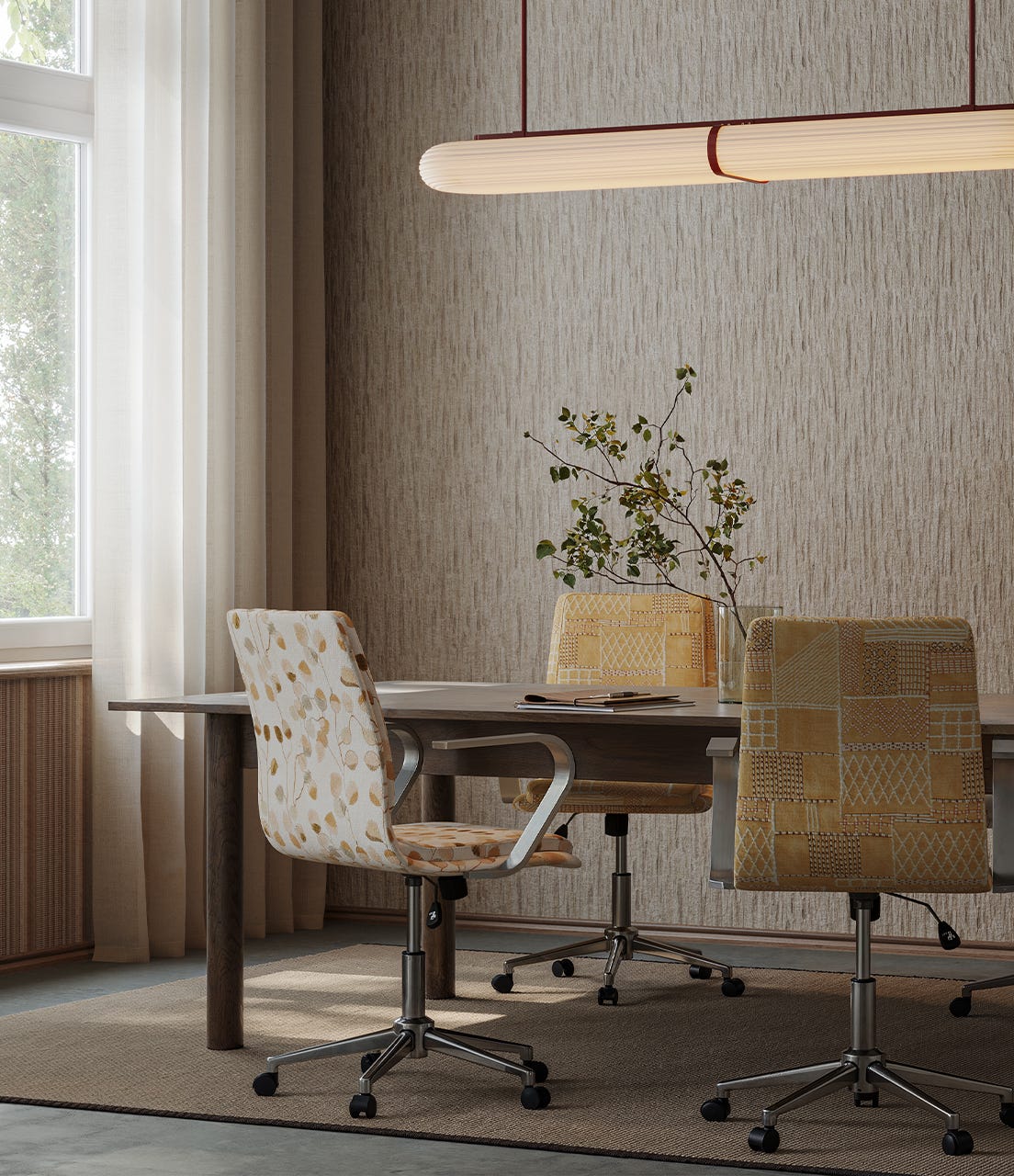
Why Are We Committed to Being More than Just PVC-Free?
Carnegie believes it’s important to walk the talk. An authentic commitment to sustainability has long been one of our values. Expanding this commitment to eliminate PFAS and antimicrobials is a testament to our leadership in sustiainable innovation.
We are equally committed to helping the industry stay smart on this topic. Reports on PVC and other harmful substances by several organizations give insight into the potentially harmful effects of this material. We invite you to draw your own conclusions:
How we support Sustainability:
- Continuously monitor our materials and their resulting impact on the planet.
- Leverage that information to improve our products.
- Push to achieve the highest levels of sustainability across all product lines.
- Focus on what’s needed to create a better tomorrow.
- Maintain the utmost respect for our employees, clients and the planet.
- Carnegie is committed to educating our clients on environmental issues.
